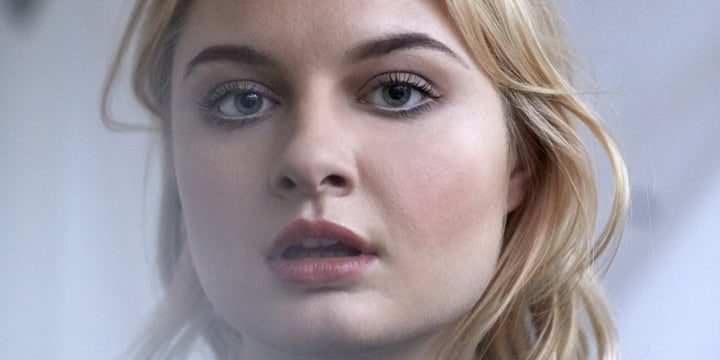Låpsley is thinking big. Sure, her debut is only just appearing across the globe, but she already has seasons of musical development under her belt.
From her unintended SoundCloud success, to playing Glastonbury and recording with some of her favourite producers, the British artist born Holly Lapsley Fletcher has travelled the world to develop her sound. Yet the admirably independent songwriter is much more than a voice and lyricist; her own forays into production are at the core of her expression, and she went about learning the craft the old-fashioned way.
“I was worried I’d be branded as a singer, and I’d be put into this box,” Fletcher explains over a telephone connection that is fading in and out. “And you do, automatically. You get put into a box as a female singer, and I hate it. I wasn’t. I was a writer and producer – I just happen to use my voice instead of someone else’s because I can sing. It’s a factory thing. [They’re] going to put you with this producer, rather than say, ‘I’m going to leave you alone to work out your own thing.’ Each producer started not being very good, but had this idea that they wanted to be a producer and they’re going to learn how. ‘I’m going to try, I’m going to make mistakes.’ You have to start somewhere.
“People just want to rush this – it’s easier to put someone with a producer, rather than that person developing the skill. You can write the song, and that determines what it’s about, but the style of the song is completely determined by the production, the feeling and emotion, in the same way that people do covers of pop songs, and they suddenly mean more when everything gets stripped back.”
It’s a very interesting point, and arguably an aspect of music whose significance many listeners underestimate. An artist’s entire intent and expression can shift dramatically once a song reaches the stage of external production, and choosing your collaborators is largely a leap of faith. By developing skills as a producer, the original shape of your song may be that much closer to your heart. Not that this was a career that Fletcher ever planned.
“I was a very academic kid. People assume that you’re not creative, because you’re obviously not good at art if you’re into science and English. So it was kind of suppressed, and it made [for] a bit of depression in high school and college because I wanted to make music, but I didn’t know what it was. Like, ‘If people are good at math or science or whatever, you should take advantage of that. You’re academic, you shouldn’t waste it on being creative.’ “It’s saying that people who are creative shouldn’t be good at science, which is complete bullshit. It doesn’t work like that. But I have family in America. We’d send each other pictures, or I’d send an essay or a favourite poem. I was making music, and put it online for them to hear, and then suddenly, it blew up on SoundCloud. I didn’t send it to any blogs or anything; I’d never read a music blog in my life and didn’t even know something like that existed. It was weird – suddenly this door opened where there hadn’t been a door.”
Recorded entirely in Fletcher’s bedroom, those fledgling songs already spoke of an artist with great potential, and her Monday EP found itself with over half a million followers. A second EP, Understudy, followed in 2015, and now – following jaunts from Liverpool to LA – her first album, Long Way Home, arrives. Yet despite her travels, Fletcher feels the album is less a product of her roaming, as much as a testament to the person she remains away from the stage lights.
“I think I’m the same person. My music isn’t about the places I’ve been. It may talk about distance, and how that affects relationships. I’m not one of these people who can only work between these hours, I need this kind of light, I need this kind of room, blah, blah, blah. It’s the same mind, the same thinking. I think I just naturally wrote most of the album in one room because I didn’t have to pay for studios. I think you reach a point where you’ve been in a windowless room for so long you maybe need a bit of change, and that’s part of the creative process too, that feeling of being a bit claustrophobic.”
At the time of our conversation, the album is still some weeks away from seeing the light of day, and I wonder about Fletcher’s anticipation, her sense of how these songs might live once they’re unleashed on the world.
“It needs to be out to feel real. At the moment, everything I’ve ever done has always been moving to something – I don’t think it shows me as an artist the way the album does by working as a whole. It’s the same for individual songs – I don’t think they’d really work without hearing the rest of the album. It’s such a different thing to just hearing one single. People assume they’ll hear a single and it will mean you have a certain [sound]. I think people need to hear the differences.”
Låpsley’sLong Way Home is releasedFriday March 4 through XL/Remote Control.


































